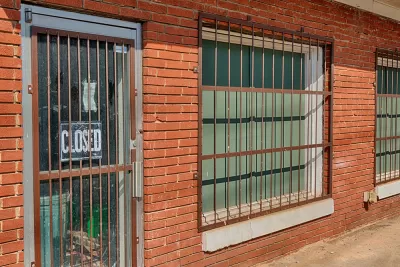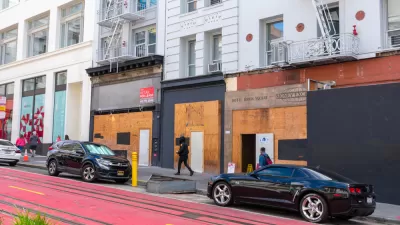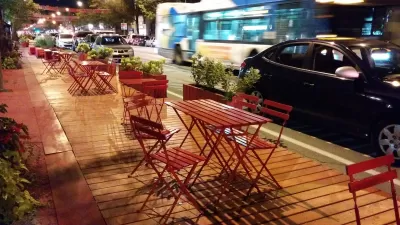Research suggests that more and more parking won't solve the woes of struggling commercial corridors, even if it's difficult for business owners located on those corridors to believe.

Colin Stewart shares analysis of the relationship between parking and commercial activity—inspired by the ongoing debate about how to mitigate high commercial vacancies in Montreal, Quebec.
The Chamber of Commerce of Metropolitan Montreal has proposed more parking, based on feedback from 261 business owners in the city.
"This intuitively makes sense," writes Stewart, "we’ve all had to buy heavy or cumbersome items that are impractical to lug home without a car. Seen in this light, businesses practically can’t function without a vehicle, and a vehicle practically can’t function without a place to park it. More parking, therefore, should mean more business."
More parking for more business is a common argument in almost every city, even in cities located in the country directly to the south of Canada. "However, looking into the data a bit further revealed a different truth," writes Stewart.
The analysis by Stewart's team at Local Logic, a Montreal-based urban planning data consultant, finds that streets with the lowest amount of available parking in the city have the lowest vacancy rates, and vice versa. "These findings may seem counter-intuitive. But there are a number of reasons why parking may not help retail business, and can even be harmful," according to Stewart.
To help build the case, Stewart cites data that show parking to be an inessential component of retail streets—with examples from Philadelphia, New York City, and the United Kingdom.
FULL STORY: Does more parking bring more business?

Planetizen Federal Action Tracker
A weekly monitor of how Trump’s orders and actions are impacting planners and planning in America.

Maui's Vacation Rental Debate Turns Ugly
Verbal attacks, misinformation campaigns and fistfights plague a high-stakes debate to convert thousands of vacation rentals into long-term housing.

San Francisco Suspends Traffic Calming Amidst Record Deaths
Citing “a challenging fiscal landscape,” the city will cease the program on the heels of 42 traffic deaths, including 24 pedestrians.

Defunct Pittsburgh Power Plant to Become Residential Tower
A decommissioned steam heat plant will be redeveloped into almost 100 affordable housing units.

Trump Prompts Restructuring of Transportation Research Board in “Unprecedented Overreach”
The TRB has eliminated more than half of its committees including those focused on climate, equity, and cities.

Amtrak Rolls Out New Orleans to Alabama “Mardi Gras” Train
The new service will operate morning and evening departures between Mobile and New Orleans.
Urban Design for Planners 1: Software Tools
This six-course series explores essential urban design concepts using open source software and equips planners with the tools they need to participate fully in the urban design process.
Planning for Universal Design
Learn the tools for implementing Universal Design in planning regulations.
Heyer Gruel & Associates PA
JM Goldson LLC
Custer County Colorado
City of Camden Redevelopment Agency
City of Astoria
Transportation Research & Education Center (TREC) at Portland State University
Jefferson Parish Government
Camden Redevelopment Agency
City of Claremont





























